
The country of Brazil occupies roughly half of South America, bordering the Atlantic Ocean. Brazil covers a total area of 8,514,215 km2 (3,287,357 sq mi) which includes 8,456,510 km2 (3,265,080 sq mi) of land and 55,455 km2 (21,411 sq mi) of water. The highest point in Brazil is Pico da Neblina at 2,994 m (9,823 ft). Brazil is bordered by the countries of Argentina, Bolivia, Colombia, Guyana, Paraguay, Peru, Suriname, Uruguay, Venezuela, and France.

The Purus River is a tributary of the Amazon River in South America. Its drainage basin is 371,042 km2 (143,260 sq mi), and the mean annual discharge is 11,207 m3/s (395,800 cu ft/s). The river shares its name with the Alto Purús National Park and the Purús Province, one of the four provinces of Peru in the Ucayali Region.
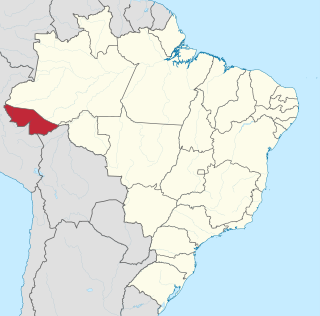
Acre is a state located in the west of the North Region of Brazil and the Amazonia Legal. Located in the westernmost part of the country, at a two-hour time difference from Brasília, Acre is bordered clockwise by the Brazilian states of Amazonas and Rondônia to the north and east, the Bolivian department of Pando to the southeast, and the Peruvian regions of Madre de Dios, Ucayali and Loreto to the south and west. The state, which has 0.42% of the Brazilian population, generates 0.2% of the Brazilian GDP.

Madre de Dios is a department and region in southeastern Peru, bordering Brazil, Bolivia and the Peruvian departments of Puno, Cusco and Ucayali, in the Amazon Basin. Its capital is the city of Puerto Maldonado. It is also the third largest department in Peru, after Ucayali and Loreto. However, it is also the least densely populated department in Peru, as well as its least populous department. It has one of the lowest poverty rates in Peru.

The Acre River is a 680 kilometres (420 mi) long river in central South America.
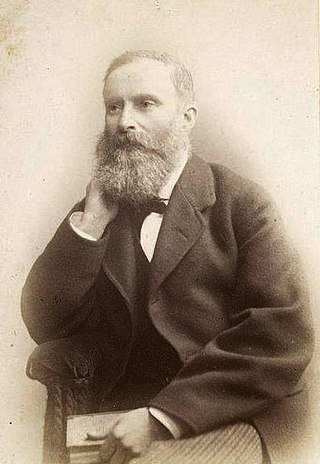
William Chandless was an English explorer of the Amazon Basin in the 1860s.
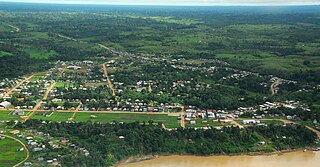
Manoel Urbano is a municipality located in the center-western region of the Brazilian state of Acre. As of 2010 it was one of the poorest municipalities in Brazil, with a low Human Development Index.

Santa Rosa do Purus is a municipality in the Brazilian state of Acre.

The gilded barbet is a species of bird in the family Capitonidae, the New World barbets, and are close relatives of the toucans.
Purus and Purús may refer to the following :
Rio Envira is a river in Acre state in Brazil. The Rio Jaminauá is one of its tributaries. It is a tributary of the Tarauacá River.
Santa Rosa River is a river of Acre state in western Brazil, a tributary of the Purus River.
The Mucuim River is a river in Brazil, a tributary of the Purus River.

The Las Piedras River is a major tributary of the Madre de Dios River in the southeast Peruvian Amazon.
The Jari River is a river in the state of Amazonas, Brazil, a tributary of the Purus River.
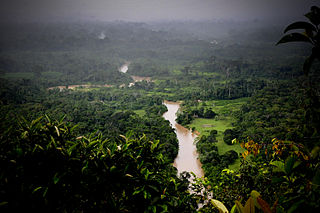
The Chandless State Park is a state park in the state of Acre, Brazil. It protects an important but relatively unexplored region of rainforest with bamboos holding great biodiversity. It is valuable as an ecological corridor between adjoining conservation units and indigenous territories. Some parts of the park are used by uncontacted nomadic indigenous people.
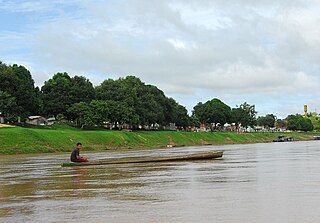
The Santa Rosa do Purus National Forest is a national forest in the state of Acre, Brazil.
Matupiri State Park is a state park in the state of Amazonas, Brazil. It protects a rich area of Amazon rainforest and an ecologically important area of woodland savanna along the Matupiri River. Unusually for a state park, it includes an "indigenous special use zone" that allows the Mura people to continue to fish and extract forest products, as they have for many generations.













